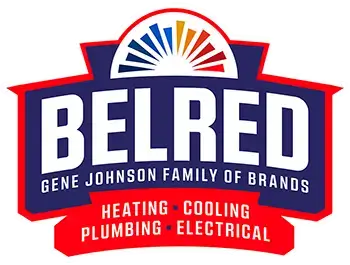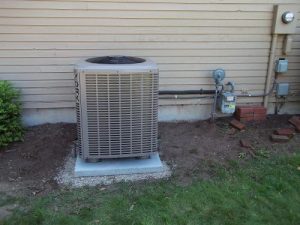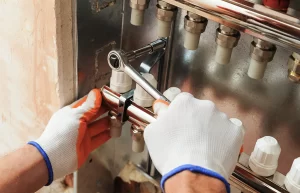When we think about insulation in our home, we often jump straight to thinking about the areas between our walls, in the ceiling or floor, or in the attic. These common places are top of mind when it comes to ensuring your home retains heat in the winter and stays cool in the summer. As we’ve discussed on this Home Energy blog before, insulation is a key component to maximizing your home’s efficiency and saving your money on your monthly energy bills.
One area that homeowners may not immediately jump to when thinking about insulation in the home is the garage—specifically the garage door. Garages are often an after thought when it comes to home energy and insulation, especially in the winter. However, this shouldn’t be the case. Having a properly insulated garage can save big bucks and increase home performance greatly, especially in colder winter months. Attached garages that are not insulated can be a huge drag on the efficiency of your home. When properly insulated, a garage can act like a warm blanket on your home, keep heat in when you most need it in the cold months ahead.
One of the biggest culprits of garage inefficiency is the garage door itself. The garage door is often the largest moving object in the home and offers the greatest exposure to the elements. Every time the door is opened, a huge amount of outside air (hot or cold), comes into the home. This obviously can’t be avoided much, as you have the regularly get your car in and out of the garage. What can be avoided, however, is escaping air when the door is closed.
An insulated garage door can help maintain the overall temperature of your home when you need comfort the most. As mentioned above, it can also go a long way toward helping reduce your energy bills. Furthermore, insulated garage doors make it much more comfortable to be in your garage. It can also be a great sound barrier to loud outside noises. Another great benefit is moisture management of your garage. A well-constructed and insulated garage door can help keep moisture out of your garage—a problem many homeowners have.
So, how do you know what to look for when shopping for that perfect insulated garage door? As with any insulation project, it’s great to know what’s best for your area and the common temperatures and environment. If you need assistance in this area, it’s a great idea to contact a professional. When looking at potential garage doors, pay close attention to the door’s R-value. R-value is a measure of thermal resistance to heat flow and is how most manufacturers show the energy efficiency of their product. The higher the R-value on the garage door, the more insulation it provides. Also look for doors with “triple –layer” construction, which consists of two outside layers of steel and an inner layer of insulation.
Depending on the construction and structure of your home, the garage door can be the biggest asset (or detriment) to home comfort and efficiency. Don’t overlook its insulation.







